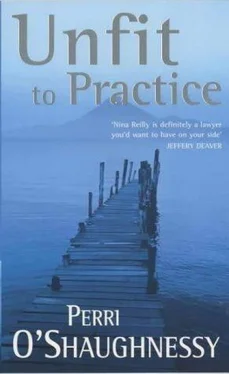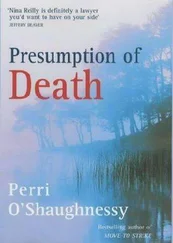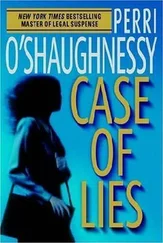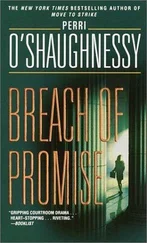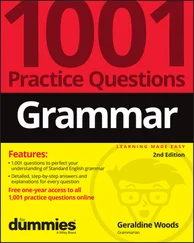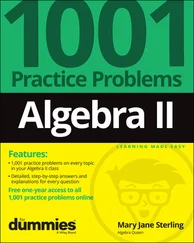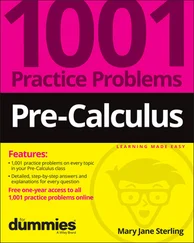“Not these cases, no,” Nina said.
“These are people who have something privileged they have told you, and it’s gonna shake their world if somebody reads your notes and talks to the right people?”
“Exactly.”
“Anybody gonna commit suicide if the story comes out?”
“Oh God, I hope not!”
“There’s that potential?”
“I can’t say.”
“Extortion?”
“Could be.”
He tilted his head. “How bad is it? Is it possible one or more of these people might be physically harmed by someone else if the news gets out?”
She didn’t trust herself to speak.
“So, you feel seriously compromised. If the worst happens, that one innocently careless act might result in irreparable harm,” Jack said slowly. He thought for a while, scratching his thumb back and forth along the wooden table. “My advice to you is, when you get back think about what you can do to prevent the clients from getting hurt.”
“The first thing I’m going to do is disclose everything to them,” Nina said. “My indefensible carelessness. The whole thing.”
“No, no, no. No sackcloth and ashes. They don’t need that. Just tell them somebody stole your truck with the files in there, and definitely tell them immediately.”
“I might be able to maneuver better if you don’t tell them right away, Nina,” Paul said. “Tiptoe in there and find a few things out before they’re warned.”
Jack didn’t get it at first, then he said, “I don’t know, Paul.”
“What’s not to understand?”
“Looks to me like you’re personally involved here,” Jack told him, frowning.
Nobody said anything for a moment.
“A job like this requires extreme subtlety, quiet smarts. Maybe-”
“I’ll quietly smart you,” Paul said, grinning. “I’m on to you. You’re jealous.”
“Well, she is my wife.”
Nina interrupted. “I was your wife, Jack. Past tense, over, and let’s not forget it because so far, that has worked for me.”
Paul’s smile grew.
“Of course I want your help, Paul,” Nina said. “Thanks.”
“Obviously,” Paul said.
“But I plan to take Jack’s expert advice. I’ll tell them tomorrow, if possible.”
Now Jack smiled.
Paul shrugged. “I can live with that.”
Jack steamed forward. “Okay. That was the good news. It’s not the usual disbarment situation. Also on the plus side, Nina, your truck might still be found with files intact. Or nothing comes of this for whatever reason, and nobody complains to the state bar, so no process gets initiated. Now let’s talk about the bad news. Let’s assume a client does complain.”
“Okay,” Nina said, bracing herself.
“Let me lay some startling statistics on you. Solo practitioners are about twenty-three percent of the lawyers in California. That’s sizable. About one out of four out of one hundred seventy thousand lawyers. Now. Fifty-four percent of complaints, which are called inquiries, are filed against solos. You get twice as many complaints filed against you, you solos, proportionately. You get that?”
“Yes. Why’s that? It doesn’t seem fair.”
“I’ll get to that in a minute. You think that’s unfair, listen to this-seventy-eight percent of the cases the state bar takes through the disciplinary-hearing process to completion are solos. Damn near four out of five, although solos only constitute a quarter of the lawyers. What does that tell you?”
“It tells me something’s wrong with this picture,” Nina said.
“Now. Let’s skip the small-firm practitioners with fewer than ten lawyers in the firm. They don’t get off easy, but don’t do nearly as badly as the solos. Let’s compare what I just said about solos to the big-firm lawyers. Lawyers in firms with more than ten people. About forty-four percent of the lawyers in California are big-firm lawyers. But guess what percentage of inquiries concern them.”
“I won’t even try,” Nina said.
“Only twenty-eight percent. And guess what percent of the cases the state bar prosecutes to completion are big-firm lawyers.”
“What?”
“Two point eight percent. Less than three percent, compared to seventy-eight percent for the solos.”
“No,” Paul said. “You’re kidding.”
“No lie. Of you solos, four out of five are going all the way. If you’re big-firm, one out of forty is going all the way.”
“That’s got to be illegal,” Paul said. “Targeting the little guys.”
Nina sat there, stunned.
“So you don’t, repeat, don’t, want to get close to the system. It’s a whale. Sucks in the little krill, avoids the sharks.”
Nina gathered her wits. “But that’s discrimination. Deliberate or institutional, I can’t believe my colleagues would allow it.”
“Who knew?” Jack said. “There were rumors for years, and we finally got a law passed to force the bar to keep the statistics and make a public report. It’s called the State Bar Report under Senate Bill 143. Read it and weep.”
“But what are they going to do about it?” Nina said.
“Not a goddamn thing. They report the stats because they have to, then they apply a thick coat of whitewash. The whitewash goes like this: It’s the fault of the solos because they don’t make as much money, don’t have lots of clerks, don’t have other lawyers around to make appearances when they’re down, operate under more stressful conditions. They say the solos are more dishonest, basically, more likely to dip into the trust account. I say bullshit to that. I don’t think that’s what happens. I’ve represented enough lawyers in these proceedings that I’ve got the real picture.”
“And?” Nina said.
“It’s two things,” Jack said. “First, when one of their own gets in trouble, the big firms pay off the client. Poof, the problem goes away. And second, the state bar disciplinary procedure is totally different from regular courtroom procedure. The mines are buried in different places. The solos in trouble often can’t afford a lawyer. They start thinking well, shit, I’m a lawyer, I’ll represent myself. Boom, they make a minor technical mistake and they’ve lost their profession and their livelihood and incidentally their reputation and often their marriages and they don’t even know what hit them. It’s ironic. They’re babes in the woods just like the pro pers who get slammed around all day in regular court because they don’t have lawyers.”
“I see,” Nina said. She stared at her plate.
“But you’ve got me,” Jack said, smiling. “You want me to represent you beyond this consult? I’m willing.”
“I could represent myself,” Nina said. “In spite of what you just said. I’m a good trial lawyer. It can’t be that different. If it comes right down to it.”
“No. No, you can’t do that. Let me give you just two reasons among many why that would be a big mistake.”
“I’m listening.”
“First, here’s a small thing, subtle. If you represent yourself, you don’t get to be called Counsel. You’re Ms. Reilly, and the other guy, the state bar lawyer, she’s ‘Counsel.’ You’re a second-class citizen. You don’t get any respect. You argue your brains out, the judge is looking at you thinking, well, it’s her ass on the line, can I trust this citation she’s giving me? See?”
“I’m still listening.”
“And second, much bigger. You’re your own lawyer, you’re on double trial. You’re trying to make a point, and the judge is watching you, saying, she did all right with that one, or she’s an exaggerator, or she’s all over the map on that one. You see? You incriminate yourself every time you open your lovely mouth. Your every flaw is blown up for the judge’s viewing pleasure, as big as in the movies.”
Читать дальше
